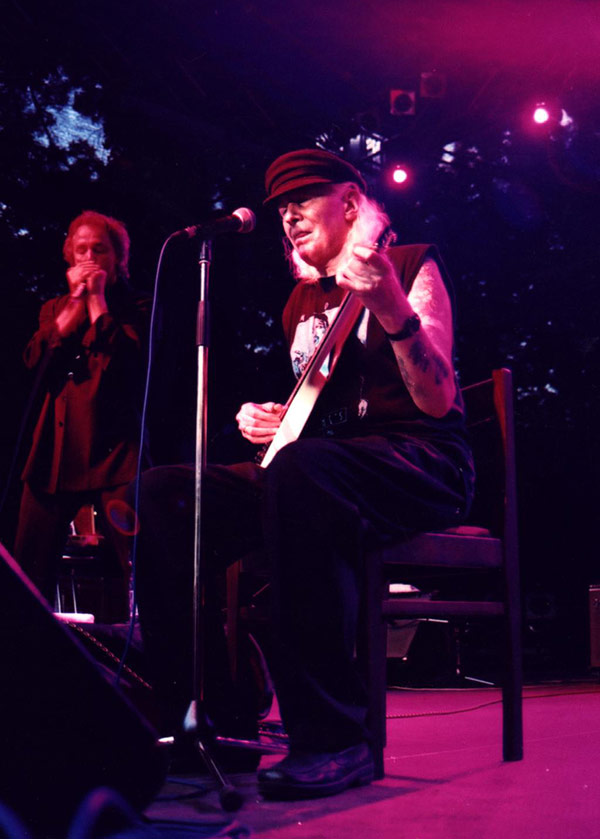Monday, 30 June 2003: Anker, Leipzig, Germany
-
Over the years, Johnny Winter has left an indelible mark on the blues scene, captivating audiences with his raw, powerful performances. Whether in Leipzig, at the iconic Anker venue, or elsewhere, Winter consistently showcased his unmatched guitar skills and deep connection to the blues, drawing in fans of all ages.
At his concert in Leipzig's Anker, a venue steeped in history, Winter’s mastery of the guitar was evident from the moment he took the stage. Accompanied by a top-tier band, including harmonica virtuoso James Montgomery and bassist Scott Spray, Winter delivered a powerful set filled with blues classics. The audience, largely dressed in blues attire, enthusiastically soaked in the groovy, electrifying atmosphere. With performances of timeless tracks like "Hideaway," "Highway 61," and "Mojo Boogie," Winter's set was a whirlwind of soulful blues and intricate guitar solos.
The audience’s excitement was palpable, with fans drawn into every note Winter played, reflecting his deep-rooted authenticity in a genre that demands honesty and emotion. Despite the passage of time, Winter's ability to command the stage and keep the crowd engaged remained a testament to his lasting talent.
With his distinctive style, including his signature thumb-picking technique, Winter delivered a concert experience that was both nostalgic and intensely vibrant. His performances were more than just a showcase of skill—they were a celebration of the blues, with each note carrying the weight of decades of musical tradition. Fans left the venue knowing they had witnessed a truly iconic artist, whose connection to the genre and ability to mesmerize with his guitar remains as strong as ever.
